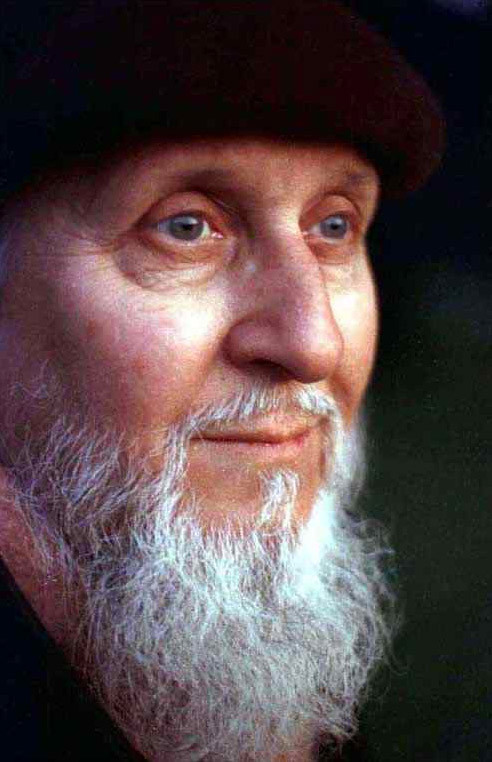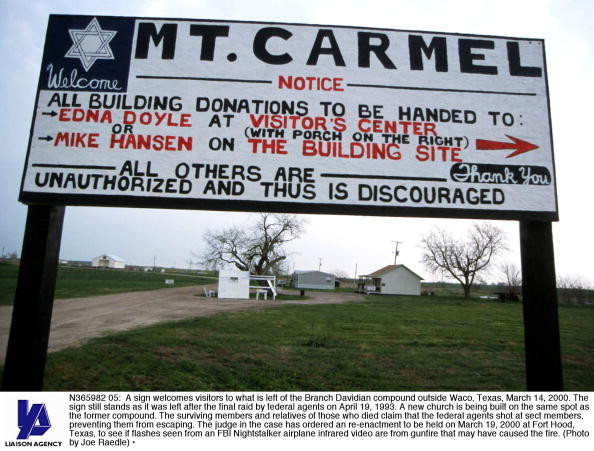Cult leaders: What makes people like David Koresh so successful at getting people to follow them?
The psychology of cult leaders like David Koresh have fascinated sociologists for decades

On 19 April 1993, David Koresh, leader of the destructive Branch Davidians cult, died after a 51-day FBI siege of the ranch he and his followers were occupying, near the town of Waco, Texas. Seventy-nine people, including children, also lost their life when the place was burnt down. The FBI had been suspecting the cult – a breakaway group from the Seventh-Day Adventist church – of hiding weapons on the compound, and sexually abusing many of its youngest members.
This episode, known as the "Waco siege", remains one of the most dramatic manifestations of what can happen when a dangerous personality takes the leadership of a group, and converts its members to an extreme ideology (see box at the end for a full definition of a "cult").
Twenty-three years on, David Koresh's name is still associated with one of the most destructive and criminal cult leaders in history. But a question remains: what was so special about Koresh that hundreds of people decided to follow him?
Who are cult leaders?

The psychology of individuals like Koresh and the mechanisms by which they draw followers in has fascinated sociologists and psychologists alike for many years.
No cult leader has ever submitted to in-depth psychotherapy, so establishing a clinically-accurate psychological profile of these men and women is a difficult task. Yet, listening to the testimonies of cult victims and studying the writings of cult leaders can provide an interesting – and sometimes chilling – insight into their minds.
"The rejection of scrutiny is the first characteristic of a cult and of its leader. They do not like to be examined, and are convinced nothing is wrong with them. In their mind, it is the rest of the world who has a problem. In that context, the only thing you can do is analyse their behaviours by interviewing their victims", former FBI agent and human behaviour expert Joe Navarro told IBTimes UK.
'Pathologically narcissistic'
Based on their work with victims, most experts coincide in saying cult leaders share a number of psychological traits that are typical of a narcissistic personality disorder, as defined the Diagnostic and Statistics Manual, the leading psychology textbook reference in the US.

"Obviously this does not mean that all narcissistic personalities will turn out to be cult leaders, nor that all leaders classify as narcissists, but there are clear indications that they do have characteristics in common," says Robert Pardon, director of the New England Institute of Religious Research.
In particular, cult leaders believe they are unique beings. David Berg, the leader of the Family International (previously Children Of God), a cult still in existence, was known under the name Moses David. He was considered as a spiritual leader by his followers, a sort of prophet showing them the way.
As a result of this "uniqueness", leaders think they are entitled to more privileges. Some of the Waco siege survivors alleged Koresh was the only man allowed to have sex with the girls in the group, including some as young as 11.
These individuals lack empathy, but they have a strong need for admiration. "This pathological tendency to narcissism does not imply 'self-love'. Rather it means that these people overvalue themselves at the same times as they devalue others", Navarro says.
Their certitude of being above everyone else exists only insofar as they are surrounded and adulated. "Cult leaders have no sense of who they are. They build their identity based on the admiration and the fear that people reflect back to them", Pardon explains.
The 'charming predator'
Cult leaders may also display antisocial personality disorder traits, which include a form of psychopathy. Perhaps the most unsettling characteristic of cult leaders – which comes back over and over in victims' account – is that they are both charismatic and authoritarian. The cult leader is a sort of "charming predator", with an ability to draw people in.
"The cult leader has a certain degree of interpersonal intelligence which pulls people into his orbit. While he is not able to reflect on his own psychological state, he understands the state of his victims, listens to them and uses it to control them", says Dr Alexandra Stein, who specialises in social psychology of ideological extremism, and is herself a former cult member.
Once the victims are isolated from everyone they knew, the effort to charm them fades, replaced by a form of coercive control, where the leader shows signs of his authoritarian nature. Violence is rarely needed to control the followers, this combination of natural charisma and authoritarianism are enough. In that sense, Stein says totalitarian regimes were not unlike cults, and leaders like Hitler shared many characteristics with cult leaders.
A mirror of the leader's personality
Whether it is large organisation or a small group of individuals, the cult is often a reflect of the leader's personality. Cult leaders cultivate secrecy, a desire to isolate followers and have a constant tendency to lie. These practices are found at all levels of the organisation.

Stein herself never met the leader of the cult she was trapped in, but his presence and his destructive influence was felt nevertheless. His authoritarianism, his control and his sense of grandiosity ended being replicated by other individuals in the cult's hierarchy.
"It is very hard to get a straight story from a cult leader because they lie a lot. On top of that they see people as dispensable, as either against them or with them. They see the world in terms of absolutes, and believe their ideology is the only answer to everything", she concludes. "Recognising this and understanding that these personality traits are the reason why a cult is the way it is is the first step to prevent people from joining it."
What is a cult?
What do we mean when we say "cult"?
They are a lot of opinions on the matter. "Some people take the question really personally. Christianity was originally thought of as a cult", Joe Navarro points out. He however says that secrecy and the fact they reject scrutiny are a good place to start defining what a cult is.
Alexandra Stein has come up with a comprehensive definition, which includes a number of elements people should watch out for to make sure they are not being drawn in a cult. The personality of the leader is the place to start, as it can tell a lot about whether the group is dangerous or not. She says looking at whether the structure is very closed, isolating and hierarchical is the next step.
The form of the ideology should also be considered to define a cult. If it is presented as the only answer to explain the universe, past and present, then it's worth considering the group as a cult.
A process of "brain washing" or "coercive persuasion" is also typical of a cult. During this process, the leader sets up an environment wherethe only perceived safe place is the group, but paradoxically it is also the source of threat . "If a group or an individual tries to isolate you from all your previous relationships, you can start worrying", Stein says.
Finally, she explains that what characterizes a cult is that as a result of this structure, ideology and process followers become highly dependent on the group and exploitable, they always acting in the interest of the cult, never in their own.
In this article, the word cult was used for groups - religious or not - which display these different characteristics.
© Copyright IBTimes 2025. All rights reserved.






















